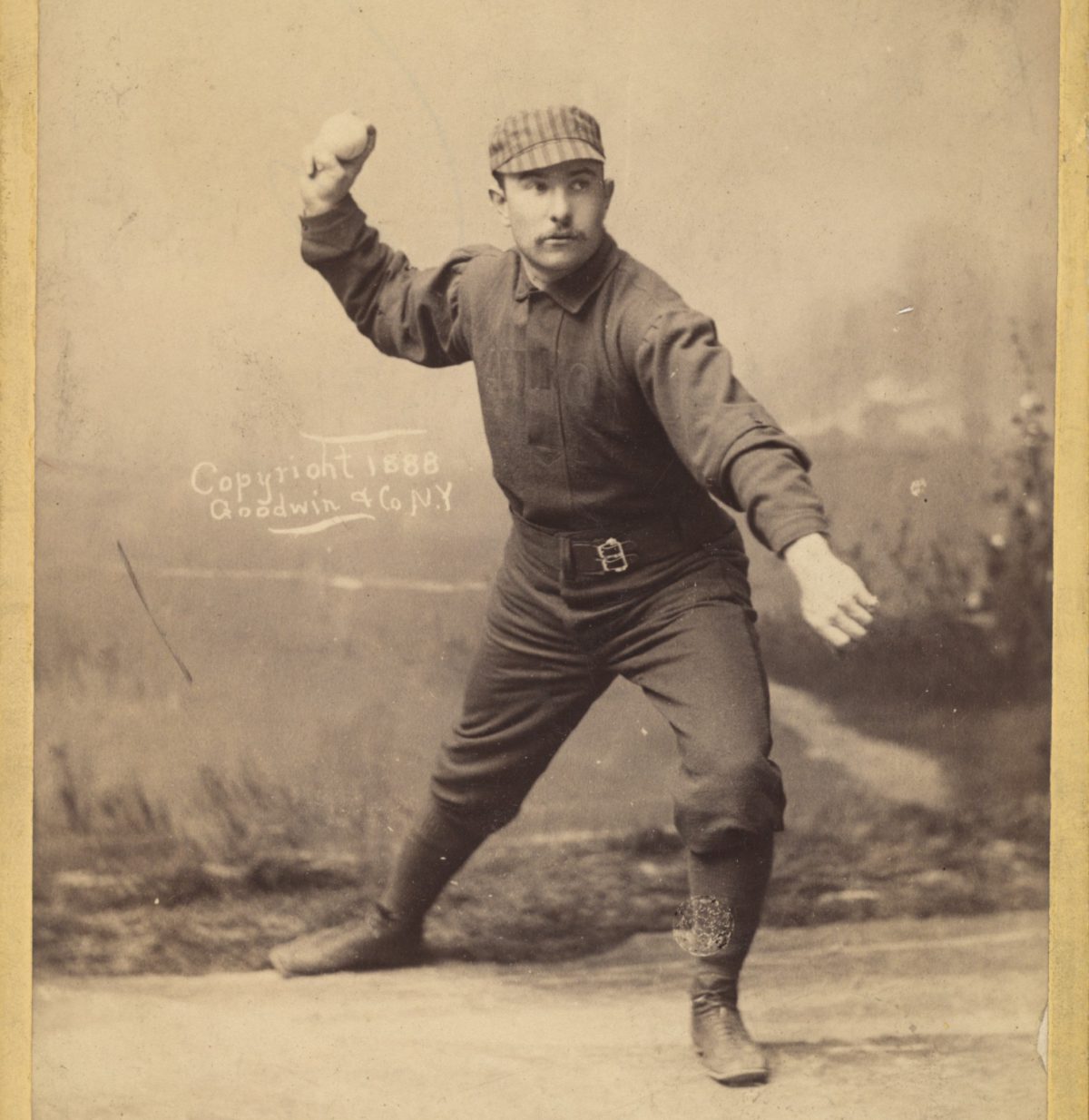In the spring of 1884, John Turner West had a grand idea. West was the owner of a tobacco shop on Walnut Street and was an officer in the volunteer fire company. He was also the proprietor of a gambling hall on the east side on North Orange Street near 5th Street known as “The Sweat Box.”
West was caught up in a relatively new craze in late 19th century America: the game of baseball. If he could convince similarly excited investors and assemble the right players together he could turn an established but underperforming local team into a bona fide major league ballclub. And that’s what he set out to do.
This story is chronicled by Queens, NY-based baseball historian Jon Springer in the 2018 book “Once Upon a Team – The Epic Rise and Historic Fall of Baseball’s Wilmington Quicksteps.” Recently, Springer discussed his research and his time in Wilmington on an episode of the Highlands Bunker podcast.
Made up of mostly working class Irish immigrants who played around the mid-Atlantic region, the Wilmington Quicksteps began the 1884 season in the professional Eastern League. The Eastern League (1884 – 1887) was one of the many minor league regional professional baseball associations of the late 19th century. These gave players an opportunity to play for money outside the two major league cartels, the National League and the American Association.
Clubs from these so-called minor leagues often played major league clubs in exhibitions to earn gate receipts during scheduling lulls caused by the slower pace of railroad travel in the late 1800s.
The Eastern League was eventually absorbed into the International League in 1887 and still exists as a Class AAA minor league today. Another minor league founded in 1923 was renamed the Eastern League in 1938. This league also exists today in Class AA.
The Wilmington side was filled with larger than life characters, skillfully described by Springer, like the team captain, nineteen year-old Thomas P. “Oyster” Burns, and pitcher Ed “The Only” Nolan. (In 1890, Burns led the National League in Runs Batted In with 128 and shared the Home Run title while playing with the Brooklyn Bridegrooms. Burns, “Silent Mike” Tiernan of the New York Giants and Walt Wilmot of the Chicago Colts all hit 13 dingers.)
The Quicksteps played their home games at the Front Street Ground, which stood at the intersection of Front and Union Streets (near the current Union Park Gardens neighborhood) and at the end of a newly installed trolley line from the train station.
The Quicksteps tore through the Eastern League and by mid-August 1884 had amassed 51 wins against only 12 losses. The club in second place at the time, the Harrisburg Olympics, posted 36 wins and 21 defeats. But rather than continue the season and clinch the Eastern League title, West had a chance to make his dream come true.
The Philadelphia Keystones of the upstart Union Association (UA) had just folded. The UA was the brainchild of St. Louis industrialist Henry Lucas. Lucas founded a fully professional major league to compete with the existing National League and American Association. He also formed the league in which his own baseball club, the St. Louis Maroons, could play.
Through some wheeling and dealing, the Quicksteps were promoted into the Union Association and into the ranks of major league baseball.
How would they fare? Could the club keep their star players from signing with richer, more established franchises? Could the players stop drinking long enough to perform at the game’s highest level? (In baseball games, that is.)
Springer mixes the local stories of late 19th century Wilmington with an astute baseball history into a fascinating book that would be of interest to a history buff and an avid baseball fan in equal measure.

